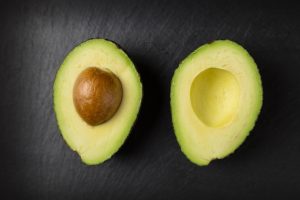What You Need to Know About Fat!
 When you decide to start a weight loss program, one of the first “rules” you often hear is to cut down on fats. While it is true that foods high in fat can contribute to weight gain, there is much more to the story about fats that has not been widely acknowledged, which includes the fact that fats can also help with weight loss. You heard that right. Fats can help with weight loss.
When you decide to start a weight loss program, one of the first “rules” you often hear is to cut down on fats. While it is true that foods high in fat can contribute to weight gain, there is much more to the story about fats that has not been widely acknowledged, which includes the fact that fats can also help with weight loss. You heard that right. Fats can help with weight loss.
Before telling that part of the story, let’s take a look at why dietary fat is an essential part of good health. Here are just a few key processes fats support:
- Absorbing vitamins for healthy skin and hair
- Helping in brain development
- Hormone production
- Reducing inflammation
- Blood clotting
- Providing the body with warmth and insulation
- Prime source of fuel for exercise after 20 minutes of physical activity
You may have heard it before, but there are indeed two camps of fats, commonly known as “bad fats” and “good fats.” Without getting too deep into the science, the main difference has to do with the presence of chemical bonds within the fat to determine if it is “bad” or good.” The good fats tend to get unfairly dismissed, maybe because it is difficult for most people to wrap their heads around the fact that fats can indeed be healthy. Here’s a snapshot of the effects and sources of both kinds of fats:
“Bad Fats ” (classified as Saturated Fat and Trans Fat).
Studies have continually shown that these fats can contribute to insulin resistance, create inflammation, and increase risk of chronic conditions like heart disease, diabetes, and stroke. They can be found in popular foods like meat products, margarine, deep-fried and processed foods, partially hydrogenated oils, baked goods and margarine.
 “Good Fats” (classified as Unsaturated Fat).
“Good Fats” (classified as Unsaturated Fat).
Research has shown that good fats help lower bad cholesterol levels and improve good cholesterol levels, which can lower risk of heart disease. Omega-3 fatty acids fall into this category, which has proven to be an essential nutrient good health, especially as we age. You can easily add unsaturated fats into your meals through olive oil, avocados, nuts, seeds, cold-water fish, fish oil supplements, coconut oil, grass fed meat and dairy.
Unsaturated fats can also be a big help in weight loss. A study published in the American Journal of Clinical Nutrition found that unsaturated fatty acids increase satiety, keeping you feeling full and satisfied for longer periods of time. This can prevent overeating, especially for those with weight loss goals eating fewer calories.
The Recommended Daily Allowance (RDA) for total fat in a healthy diet for adults is between 20-35 percent of total daily calories, with no more than 7% of that coming from bad fats. In other words, when you consume fats, it is wise to make as much of them the unsaturated type.
Research from The American Heart Association (AHA) backs up the RDA guidelines, In its latest study, scientists analyzed eating habits and food availability in over 186 countries. From the data, they were able to determine that over 10 percent of heart disease deaths can be attributed to lack of unsaturated “good” fats, and over 10 percent of heart disease deaths can be attributed to excessive consumption of saturated and trans fats. Furthermore, scientists estimate that a million lives can be saved every year by replacing saturated and trans fats with vegetable oils.
The moral of the story is to don’t be quick to rule out fats in your weight loss strategy. Make sure you are getting enough of the good and minimize the bad, and combine your choice of fats with other informed food decisions.



